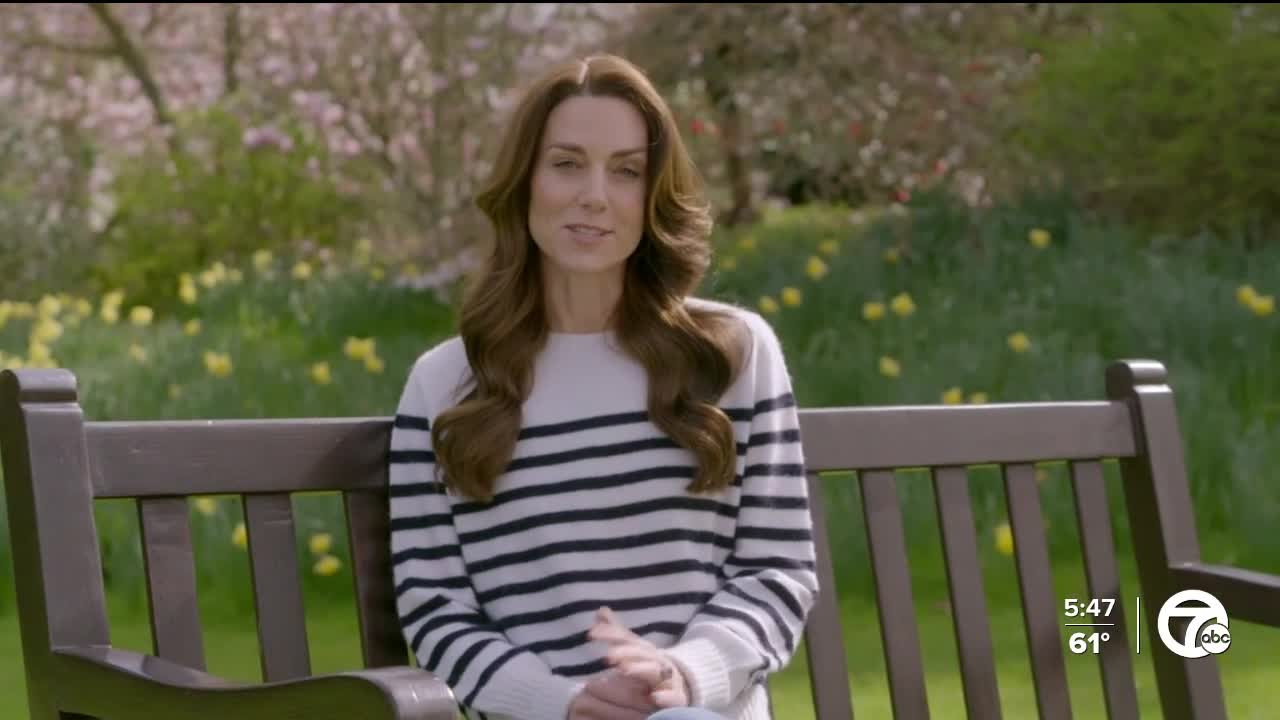(WXYZ) — Princess Kate, the princess of Wales, revealed she is undergoing "preventative chemotherapy." In a prerecorded video statement, she shared her cancer diagnosis resulted from tests conducted after she had abdominal surgery in January.
VIDEO: Princess Kate reveals she is being treated for cancer:
‘Preventative chemotherapy’ is not a technical term. In the medical field, we call it "adjuvant" chemotherapy. Essentially, it’s a treatment to prevent cancer from returning, and it’s often administered after primary treatments like surgery.
Now, you might be wondering, ‘if the tumor or cancerous cells were surgically removed and are gone, why go through adjuvant chemotherapy’? Well, surgeons can only take out what they can see. So it’s possible that microscopic cancer cells are left behind. Also, there could be cancer cells circulating in the bloodstream or the lymphatic system. And without treatment, cancer can return. So preventative chemotherapy can reduce this risk because the drugs attack rapidly dividing cancer cells throughout the entire body.
Now, that’s not to say that "adjuvant" chemotherapy is a cure-all. It’s not, and results depend on the type and stage of cancer being treated. Every patient must consider the pros and cons. Because chemotherapy can also damage normal healthy cells in the blood, the mouth, digestive tract, reproductive system and hair follicles. And this can lead to side effects like nausea, vomiting, mouth and throat sores, and hair loss. Patients can also experience fatigue, headaches, diarrhea, and blood disorders. Some chemo drugs can also cause long-term side effects such as heart or nerve damage and fertility issues.
Princess Kate, at just 42 years old, highlights the stark reality that cancer knows no age limits.
A recent report from the American Cancer Society revealed cancer cases are on the rise in younger adults under the age of 50.
As for Princess Kate's potential cancer diagnosis, colorectal cancer is a significant possibility. I am seeing a growing number of younger patients diagnosed with this type. It’s become the leading cause of cancer death for men and second for women under 50. However, other gastrointestinal cancer possibilities include stomach, pancreatic, and liver cancer. It could also be a gynecologic cancer like cervical, ovarian, uterine, or vaginal.
The good thing about adjuvant chemotherapy is that it’s very effective for bowel cancer if that’s what she has. Of course, this treatment approach may also be recommended for other types of cancer.
Regardless of the specific cancer the Princess of Wales is facing, I wish her a full recovery. And let her journey serve as a reminder to all younger adults to promptly seek medical attention for any unusual or concerning symptoms.




